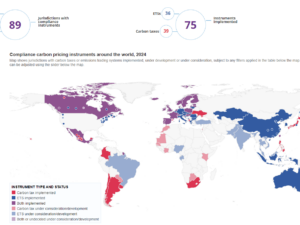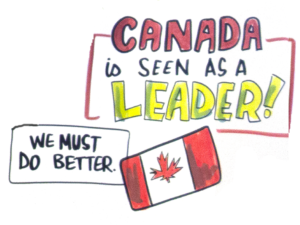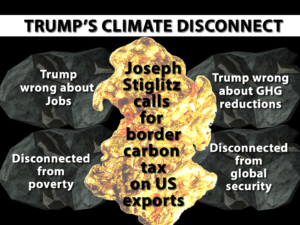FOR IMMEDIATE RELEASE: December 21, 2017 Sudbury: Yesterday, the federal government clarified timelines and expectations for Canada’s carbon pricing policy. Environment and Climate Change Minister Catherine McKenna and Finance Minister Bill Morneau delivered letters to provincial and territorial governments setting a deadline of September 1, 2018, for each jurisdiction to outline how they are implementing carbon pricing systems that meet the federal standard. The federal government will then determine whether the planned systems are on track to meet the standard, or whether the federal approach should be applied in that jurisdiction. The letter also invites any jurisdictions wishing to adopt the federal approach to confirm that decision by March 30, 2018. This would allow them to implement the federal approach in those jurisdictions in Fall 2018 with the federal standard price of $10 per tonne. “Since 2010, Citizens’ Climate Lobby (CCL) Canada volunteers have been lobbying our federal, provincial and territorial parliamentarians for a comprehensive carbon pricing policy,” says the national director, Cathy Orlando. “In 2017, they have lobbied parliamentarians well over 100 times for five simple steps to improve Canada’s carbon pricing policy.” Citizens’ Climate Lobby’s Five Simple Steps A November 9, 2017 Abacus poll highlighted the political risk of falling short on the climate. Half of the Canadian voters (49%) won’t consider a party or a candidate that doesn’t have a plan to combat climate change. “There have been significant developments in the past two weeks internationally. There was a deluge of blockbuster commitments last week in Paris at the One Planet Summit. This week, China unveiled new details on its national carbon market, which is set to become the largest emissions trading system in the world,” outlined Cathy Orlando, CCL Canada’s national director . “Although there is a lot of work ahead to secure a healthy climate for future generations, given the Canadian government’s resolve in combination with international commitments and the recent Abacus poll, it appears that the trend toward an effective carbon pricing policy for Canada is irreversible.” Contact: Cathy Orlando, cathy@citizensclimatelobby.org, 705-929-4043, International Outreach Manager and Canadian Director, Citizens’ Climate Lobby ###MEDIA RELEASE: The Trend Toward an Effective Carbon Pricing Policy For Canada is Irreversible
MEDIA RELEASE: The Trend Toward an Effective Carbon Pricing Policy For Canada is Irreversible
Home » CCL Canada News » MEDIA RELEASE: The Trend Toward an Effective Carbon Pricing Policy For Canada is Irreversible
MEDIA RELEASE: The Trend Toward an Effective Carbon Pricing Policy For Canada is Irreversible
Posted on December 21, 2017 in Media Release












